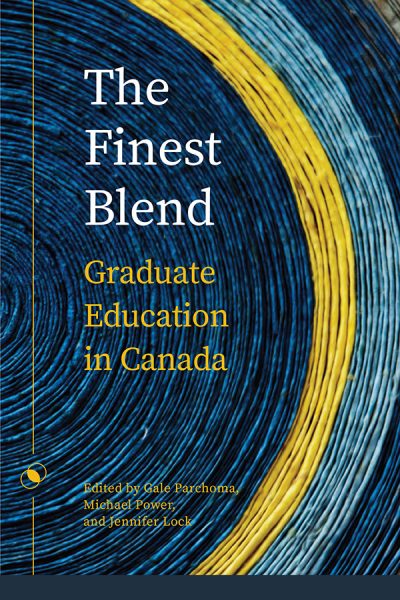As Canadian universities work to increase access to graduate education, many are adopting blended modes of delivery for courses and programs. Within this changing landscape of higher education, The Finest Blend answers the call for rigorous research into these methods to ensure quality learning and teaching experience and presents case studies of French and English universities across Canada that are experimenting with blended learning models in graduate programs.
Drawing on various research methods, the contributors to the volume investigate the sustainability of blended learning, shifts in pedagogical practices, and the role of instructional designers. They share key practices for both graduate students and instructors and emphasize the importance of institutional and departmental support for both students and faculty transitioning to blended delivery modes. Touching on theory, design, delivery, facilitation, administration, and evaluation, this book provides a comprehensive overview of current practices and opportunities for blended learning success.
With contributions by Alicia Adlington, Shaily Bhola, Denise Carew, Jane Costello, Daph Crane, Jane Hanson, Michael Fairbrother, Wendy Kraglund-Gauthier, Shehzad Ghani, Michele Jacobsen, Carol Johnson, Sawsen Lakhal, Yang (Flora) Liu, Dorothea Nelson, Pam Phillips, Marlon Simmons, Kathy Snow, Maurice Taylor, and Jay Wilson.
About the Editors
Gale Parchoma was the national program coordinator for Canada’s Collaboration for Online Higher Education Research (COHERE) and associate professor in the Department of Curriculum Studies: Educational Technology and Design at the University of Saskatchewan. She was an adjunct associate professor at the University of Calgary and an associate member of the Centre for Technology Enhanced Learning in the Department of Educational Research at Lancaster University in England.
Michael Power is a retired professor of Educational Technology at the Faculty of Education, Laval University. His research focuses primarily on blended online learning design (BOLD) modeling at dual-mode universities, in order to improve learner experience and sustain university outreach.
Jennifer Lock is professor and vice dean of Teaching and Learning in the Werklund School of Education, University of Calgary. Her area of specialization is in the Learning Sciences. Her current research interests are in e-learning, change and innovation in education, scholarship of teaching and learning in higher education, and makerspaces.
Table of Contents
- Foreword / Ron Owston
- Introduction / Michael Power, Gale Parchoma, and Jennifer Lock
- 1. A Critique of Course-Delivery Strategies Implemented by Canadian Universities / Michael Power
- 2. The Role of the Department Chair in Supporting Online Graduate Programs in Education: An Auto-Ethnographical Study of Mentorship and Evaluation / Jay Wilson
- 3. Graduate Student Online Orientation Programs: A Design-Based Research Study / Jennifer Lock, Yang Liu, Carol Johnson, Jane Hanson, and Alicia Adlington
- 4. The Effective Use of Text, Visuals, and Audio in Online Graduate Learning / Jane Costello, Pam Phillips, Denise Carew, and Daph Crane
- 5. Using Participatory Action Research to Support Pedagogical Processes in Postsecondary Online and Blended Spaces / Wendy L. Kraglund-Gauthier
- 6. Blended Synchronous Learning in One University’s Graduate Programs in Education / Sawsen Lakhal
- 7. Supporting Authentic Higher Education Through Sustainable Open Learning Design / Kathy Snow
- 8. What Really Works in a Blended Learning Graduate Program? A Case Study of a Faculty of Education / Maurice Taylor, Shehzad Ghani, and Michael Fairbrother
- 9. Embodiment and Engagement in an Online Doctoral Research Methodology Course: A Virtual Ethnographic Study / Gale Parchoma, Marlon Simmons, Michele Jacobsen, Dorothea Nelson, and Shaily Bhola
- Conclusion: Leading, Not Following, the Reform in Canadian Higher Education / Jennifer Lock and Michael Power
This work is licensed under a Creative Commons License (CC BY-NC-ND 4.0). It may be reproduced for non-commercial purposes, provided that the original author is credited.
